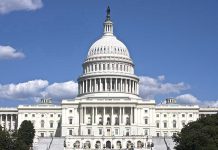
Six foreigners lost their right to enter the United States not for crimes committed, but for the words they posted online—a chilling reminder that in today’s America, a social media comment can turn into a life-changing verdict.
Story Highlights
- The U.S. State Department revoked visas of six foreigners over social media posts about Charlie Kirk.
- This controversial move underscores the expanding power of digital speech to shape, or shatter, personal freedoms.
- The government cited “no obligation” to host foreign nationals who “celebrate heinous” acts, raising questions about free speech and sovereignty.
- Debate intensifies over whether political dissent online should trigger such sweeping consequences.
Visa Revocations Spark Global Conversation on Digital Speech
Six individuals, citizens of foreign nations, discovered their U.S. visas revoked after making social media comments about the high-profile death of activist Charlie Kirk. The U.S. State Department, under Donald Trump’s administration, justified its actions by stating it has “no obligation” to host those who “celebrate heinous” acts. This incident thrusts the boundaries between digital expression and sovereign discretion into the spotlight, forcing the nation to confront where the digital world ends and the long arm of government begins.
Leaders and legal scholars quickly weighed in. Some defend the government’s prerogative to deny entry to non-citizens whose views they consider abhorrent or inflammatory. Others question the wisdom—and the precedent—of using social media commentary, often hastily written, as grounds for such drastic action. The reality is that in the age of digital footprints, every online utterance becomes a permanent record, capable of triggering responses that would have been unthinkable a decade ago.
The Power—and Peril—of Words in a Hyperconnected World
Government agencies increasingly monitor online activity, not only of their own citizens but also of those seeking to visit. In this case, critical or even celebratory remarks about a controversial activist’s death were interpreted as a security risk or a moral failing severe enough to bar entry. The policy is not new—visas have long been denied for criminal records, suspected terrorist affiliations, or other security concerns. What is new is the broadening of “threat” to include digital expressions of opinion, exposing a tension between national security and the evolving definition of free speech, especially for non-citizens.
For conservatives, the move may seem like common sense: a nation should not extend hospitality to individuals who openly express approval of violence or social disorder. Yet, questions arise about consistency and fairness. Would the same standard apply to those expressing unpopular opinions about left-wing figures? Would an offhand comment, perhaps made in anger or ignorance, be sufficient to exile someone from opportunity, family, or safety? These are not just theoretical questions—they shape lives and reputations in real time.
American Values Tested: Free Speech, Security, and the Cost of Discord
The revocation decision intensifies an ongoing debate about American values in the digital era. Conservative voices often champion national sovereignty, arguing that the United States should have the absolute right to decide who enters and on what grounds. This perspective aligns with the notion of the nation-state as protector—not only of borders, but also of moral and cultural order. But the price of this protection is uncertainty for millions who may one day be judged not by their actions, but by their words—words preserved and parsed by algorithms and officials alike.
For critics, the episode signals a dangerous drift toward policing thought and punishing political dissent, even among those who do not reside within America’s borders. The American experiment has always thrived on robust debate, even when it is uncomfortable or contentious. If expressing an opinion about a public figure can trigger such severe consequences, the line between defending national interests and silencing opposition grows perilously thin. Ultimately, the true test lies in how a society balances its security with its commitment to freedom, even for those who stand outside its gates.
Sources:
US revokes visas over comments made about Charlie Kirk’s death


















